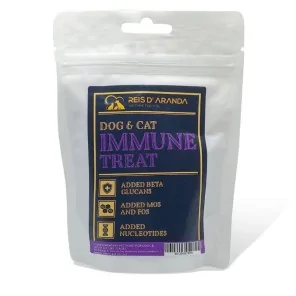The Tornjak originated from genetically homogeneous, almost extinct, indigenous shepherd dogs. These dogs have...
KENNEL COUGH
INTRODUCTION
Kennel cough, also known as canine infectious respiratory disease, formerly canine infectious tracheobronchitis, is an upper respiratory tract infection affecting dogs.
WHAT IS KENNEL COUGH?
Kennel cough is a disease actually called canine infectious tracheobronchitis, and is a viral and bacterial condition (both together) of the canine upper respiratory system (specifically the nasal cavity, larynx, trachea, vocal cords and bronchi). The micro-organisms that are frequently implicated in its occurrence are the bacterium Bordetella bronchiseptica in conjunction with a respiratory virus such as parainfluenza or canine adenovirus type 2.
SYMPTOMS OF KENNEL COUGH
The main symptom of the disease is coughing: it is a strong, dry, hoarse cough (sometimes it feels as if the dog has something stuck in the vocal cords). Severe coughing may also cause vomiting. The dog may also show fatigue, lack of appetite, conjunctivitis and fever.
Symptoms can last for quite a long time (about two weeks). And, if left untreated, superinfections and complications of bacterial pneumonia can occur, causing high fever, breathing difficulties, wet cough and even severe bronchopneumonia.
These symptoms can be similar to those of other respiratory diseases in dogs, such as bronchitis or pneumonia. It is therefore important to consult a veterinarian for an accurate diagnosis and appropriate treatment.
CAN KENNEL COUGH BE PREVENTED?
There are several vaccines against kennel cough. Santévet's dog insurance helps to finance, among other things, the costs of this vaccination, as any veterinary expenses in case of accident and/or illness are reimbursed up to 100%.
The vaccination is carried out in 2, 3 or even 4 injections with an interval of 3 to 5 weeks, depending on the age of the pet. In addition, a booster is necessary between 6 and 12 months, and then an annual booster.
There is also an additional vaccine that protects against the bacteria Bordetella bronchiseptica and the Parainfluenza virus and can be administered by injection, intranasally or intraorally. It is highly recommended for all dogs, especially for dogs that are often in close contact with other animals.
CAN KENNEL COUGH BE CURED?
Treatment for kennel cough depends on the causative agent and the severity of the condition. The following are the most commonly prescribed treatments:
- ANTIBIOTICS: if the cough is caused by a bacterial infection, these will help fight the infection.
- VACCINATION: vaccination can prevent illness when the source is a virus.
- ANTIINFLAMMATIVES AND ANALGESIA: these will be prescribed almost systematically in order to reduce inflammation and relieve pain.
- BRONCHODILATORS: in case of a very strong cough, they help to dilate the airways and relieve coughing. They are administered in the form of droplets.
Treatment may last from ten days to four weeks, and in the meantime it is important to isolate the animal.
The prognosis and sequelae of kennel cough depend on the underlying cause and severity of the condition. In general, it is a curable condition if treated early, and the prognosis is good in these cases.
If the disease becomes complicated, the prognosis is more guarded. In rare cases, kennel cough can cause irreversible damage to the lungs or heart.
CONCLUSION
In conclusion, kennel cough is a common condition in dogs that can be caused by a variety of factors, including viral or bacterial infections. It is possible to prevent kennel cough with a vaccination protocol that should be kept up to date.
Leave a comment
Log in to post comments
















